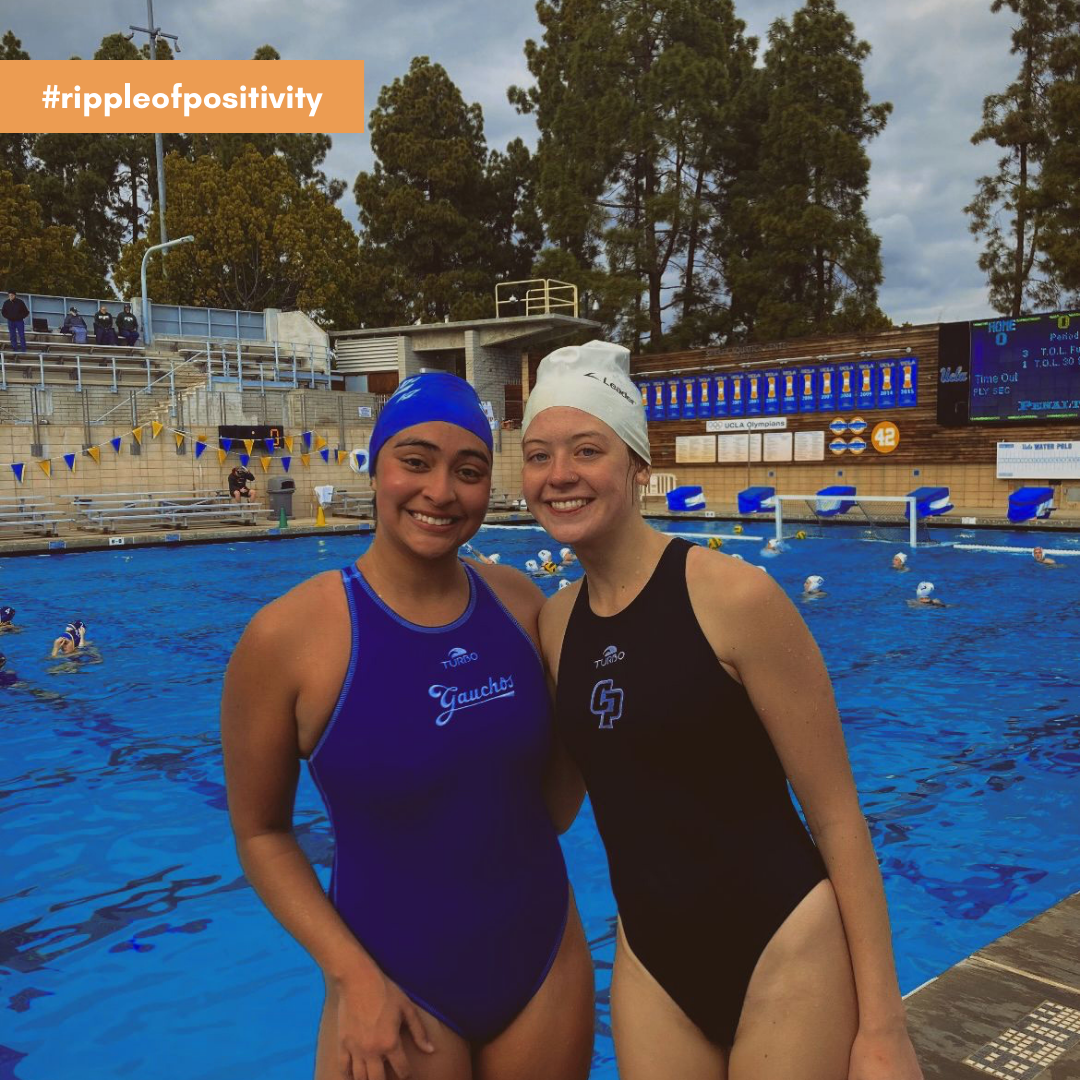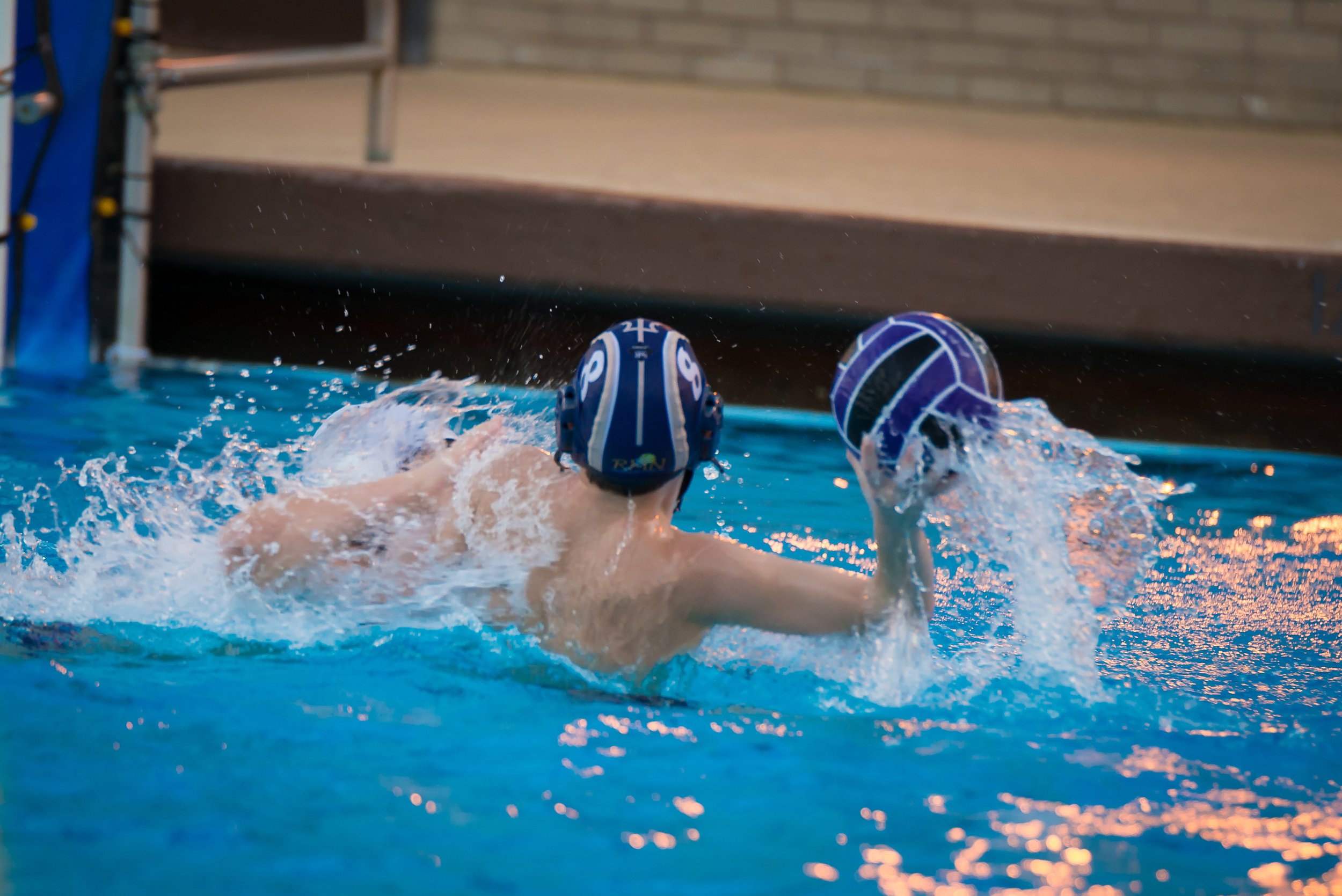Diving In: 7 Ways Water Polo Boosts Mental Health
Vaughn Bigelow Jr., or Bubba as we called him, loved the competition and friendships he found in sports. He was a talented skier, avid biker, and flag football player for a few seasons. But the water was his happy place, and water polo was his specialty.
Josh and Vincent the Vaughn Bigelow 2024 Scholarship Recipients
He was a proud member of the Rocky Mountain Neptunes water polo team. Some of the Neptunes were selected as part of an Olympic Development Program Mountain Zone team that competed in tournaments as far away as California. Vaughn loved being a part of that group. We enjoyed watching him play in tournament games close to home and around the country. We were so happy to hear he had found a team and a sport he could grow with.
The water polo community was starting to feel like family, and Vaughn Sr. and Meghan will never forget the hours sitting poolside, cheering him on. We will never get to see what he would have been when he grew up.
We believe water polo shapes you physically, mentally, and emotionally. We’re committed to helping the youth Colorado Water Polo community grow. Here are seven ways water polo helps support mental health in our kids.
1. The Current of Courage
Water Polo’s Confidence Boost
Water polo requires players to master complex skills like swimming, ball-handling, and strategizing under pressure. Kids work hard to improve these abilities and feel accomplished after mastering them. What they learn in the pool follows them out of the pool and into everyday life. Danny Rhuby said this about his time playing water polo, “Through water polo, I have found people in this world who are dedicated to making it a better place and teaching me along the way to do the same, and because of all of this, I am becoming who I’m supposed to be in this life.”
2. Riding the Waves & Building Resilience
Water polo is fast-paced. You have to make split-second decisions and adapt. Players learn to recover from mistakes—whether it’s missing a goal or losing a match. These moments teach our youth how to navigate life’s ups and downs. Danny says, “water polo has taught me many life lessons. Some of those lessons over the years have been great, and some have been really challenging. I have made many friends from all over the country that I will treasure forever. I have celebrated huge wins, and I have grieved serious losses. I have learned about compassion and loyalty, and I have learned a little about what it’s like to feel really alone, but how to push on, find my place, and get to the other side.”
Water Polo fosters friendships in and out of the pool, scholarship winners, Cody Ortiz left and Evie Kropp right.
3. Friendships That Flow
Teamwork and Connection in Water Polo
Water polo players must communicate effectively and trust one another to succeed. Big Waves Scholarship application Nathaniel (Nate) Starbuck says, “First, it has taught me how to be a part of a team. In water polo, you heavily rely on your teammates in order to play well. This mentality showed me that it is not all about me, rather it is about working together to achieve our goals.”
Teamwork in the pool also fosters friendships. You have a sense of belonging to something bigger than yourself and don’t feel isolated, a key component of positive mental health.
Nate explains, “Water Polo gave me a chance to make so many amazing people, some of whom are my greatest friends in the world. It gave me a community filled with love, compassion, excitement, and joy. For this, I will always be thankful.”
The physical demands of water polo help give kids relief from the pressure they feel outside of the pool.
4. Draining the Pressure
Emotional Relief in the Pool
Today’s kids are under a lot of pressure from school, peers, work, family, community, and more. Physically, water polo offers a healthy outlet for releasing pent-up energy and emotions. Releasing the pressure can help players feel more relaxed and balanced.
5. In the Zone
Finding Focus with Water Polo
Balancing practices, games, and academics requires strong time management and discipline.
Charlie Wang struggled with balance at first, “It was difficult to fit water polo into my schedule, already packed with advanced classes (AP and IB). School was my priority, and if I struggled in school, water polo would have to go. I knew the individual challenges of both advanced classes and water polo, but my natural competitiveness made me want to succeed at both.”
Charlie would work at whatever time was available to him, “completing assignments in the car, after water polo in the hotel rooms at night, and especially in the airport and on the plane. Often, I’d have to work all night after playing for 10 hours during a camp. I work on the pool deck between tournament games. Staying on top of my homework and keeping organized is essential to my success. To complete my school work on time, I had to overcome my tendency to procrastinate by making myself start assignments early. The work and dedication to both water polo and school paid off, as I became a stronger water polo player and student.”
The challenges kids face in water polo, along with balancing the sport and school, improve their work ethic and time management skills and make them more adaptable. Charlie credits water polo with his “ability to succeed in water polo, and school showed me that I can complete other ambitious challenges I’m faced with in the future.”
6. Endorphins in Motion
How Water Polo Fuels Mind and Body
The no-brainer benefit of water polo is the physical benefits. Besides improved cardiovascular health and muscle strength, the exertion from water polo releases endorphins, aka the “happy hormones”—which reduce anxiety, depression, and stress.
Vaughn Bigelow Jr., or Bubba as we called him, loved the competition and friendships he found in sports.
7. Charting New Waters
Developing a Growth Mindset
In water polo, progress comes with consistent hard work and practice. Players learn that setbacks are opportunities to grow and not to beat themselves up. This mindset fosters a positive approach to life’s challenges and boosts emotional resilience.
Nate shares that he used to be really hard on himself until he found water polo. “Today, I don’t beat myself up if I make a mistake. I embrace it and learn from it. I apply this growth mindset to all parts of my life.”
Water Polo’s Ripples Beyond the Pool
More than just a sport, water polo is an excellent outlet for stress. It nurtures mental health by instilling confidence, resilience, teamwork, and a growth mindset.
Are you thinking about making a splash with water polo? To learn more about water polo in Colorado, click here to go to the Colorado High School Water Polo Association’s website.





